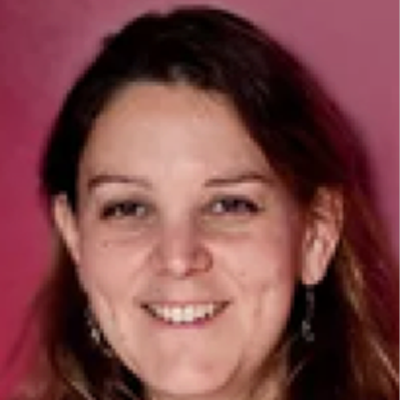

Biography of Resistance: The Epic Battle Between People and Pathogens
Learn more about this seminar!
Biography of Resistance: The Epic Battle Between People and Pathogens
Harmful strains of bacteria have resulted in plagues and pandemics for millennia. How are the driving forces of antibiotic resistance, and individual and societal decisions contributing to this developing public health crisis?


Register
Course Information
- Audience: Public health workforce audiences interested in antibiotic resistance
- Format: Webinar
- Date/Time: Recorded Wednesday, September 23, 2020 4:30 PM -6:00 PM ET
- Price: Free
- Length: 1.5 hours
- Credential(s) eligible for contact hours: Sponsored by New England Public Health Training Center (NEPHTC), a designated provider of continuing education contact hours (CECH) in health education by the National Commission for Health Education Credentialing, Inc. This program is designated for Certified Health Education Specialists (CHES) and/or Master Certified Health Education Specialists (MCHES) to receive up to 1 total Category I continuing education contact hour. Maximum advanced-level continuing education contact hour is 1. Provider ID: SS1131137, Event ID: SS1131137_BREBBPP. If you are not seeking CHES/MCHES contact hours, if you complete the evaluation, you will receive a Certificate of Completion. The Certificate will include the length of the course.
- Competencies: Public Health Sciences Skills
- Learning Level: Awareness
- Companion Trainings: None
- Supplemental materials: NA
- Pre-requisites: None
About this Seminar
Harmful strains of bacteria have resulted in plagues and pandemics for millennia. How are the driving forces of antibiotic resistance, and individual and societal decisions contributing to this developing public health crisis?
Note: This seminar was developed and recorded by BUSPH. Our Dean’s Signature Programs bring speakers to our campus to engage in thoughtful conversations about the pressing issues of public health. They are open to our entire community, designed to inform, stimulate, and encourage groundbreaking discussion.
What you'll learn
At the end of the seminar, participants will be able to:
- Describe the historical contributions of at least 5 researchers to the understanding of infectious disease
- List 4 ways in which global conflict contributes to increasing the occurrence of infectious diseases
- Describe the roles of agricultural practices and poverty in the occurrence of infectious diseases
- Identify market and economic concerns that negatively influence the generation of new anti-microbial drugs
Subject Matter Expert

Muhammad Zaman
Professor of Biomedical Engineering and International Health

Karen Weintraub
Health
and
Science Journalist
Muhammad H. Zaman is Howard Hughes Medical Institute Professor of Biomedical Engineering and International Health at Boston University. Prof. Zaman’s current research is focused on three areas, namely using quantitative tools to understand tumor metastasis, developing robust technologies for high-value healthcare problems in the developing world, particularly in the area of maternal and child health, and working on health and innovation policy issues in developing nations. Technologies developed by Prof. Zaman are in various stages of implementation in several countries. In 2013, Scientific American named a technology from Zaman’s lab, PharmaChk, among the 10 technologies that will change the world.
He has won numerous awards for his research and teaching from IEEE, FEBS, American Society for Engineering Education, USAID, The US National Academy of Sciences, The University of Texas System, Boston University and other national and international organizations. Most recently, he was named Howard Hughes Professor by the Howard Hughes Medical Institute and was elected as a Fellow of American Institute of Biological and Medical Engineering.
In addition to his research, Prof. Zaman is actively engaged in bringing quality engineering education in several developing nations. He is currently involved in setting up biomedical engineering departments at universities in Kenya, Zambia, Uganda and Ethiopia. He is Co-Director of the UN Africa Biomedical Initiative. He is a regular contributor on issues of drug quality control and global health for the Project Syndicate (his columns have appeared in newspapers in more than 20 countries) and Huffington Post, and writes a weekly column on innovation in health and education for leading Pakistan daily, Express Tribune, which is part of the International New York Times group.
Independent Health/Science journalist covering the biological sciences.Regular contributor to The New York Times, The Washington Post, Scientific American.com, WBUR radio and others. Journalism educator and book author.
Registration
Select the Enroll Me button below to register for this seminar recording. If you have any trouble accessing the recording, contact support@nephtc.org.
Acknowledgement: This project is/was supported by the Health Resources and Services Administration (HRSA) of the U.S. Department of Health and Human Services (HHS) under grant number UB6HP31685 “Regional Public Health Training Center Program.” This information or content and conclusions are those of the author and should not be construed as the official position or policy of, nor should any endorsements be inferred by HRSA, HHS or the U.S. Government.
* Yale School of Public Health, Office of Public Health Practice, a New England Public Health Training Center partner, is a designated provider of continuing education contact hours (CECH) in health education by the National Commission for Health Education Credentialing, Inc. All CHES credit inquiries are managed by YSPH
